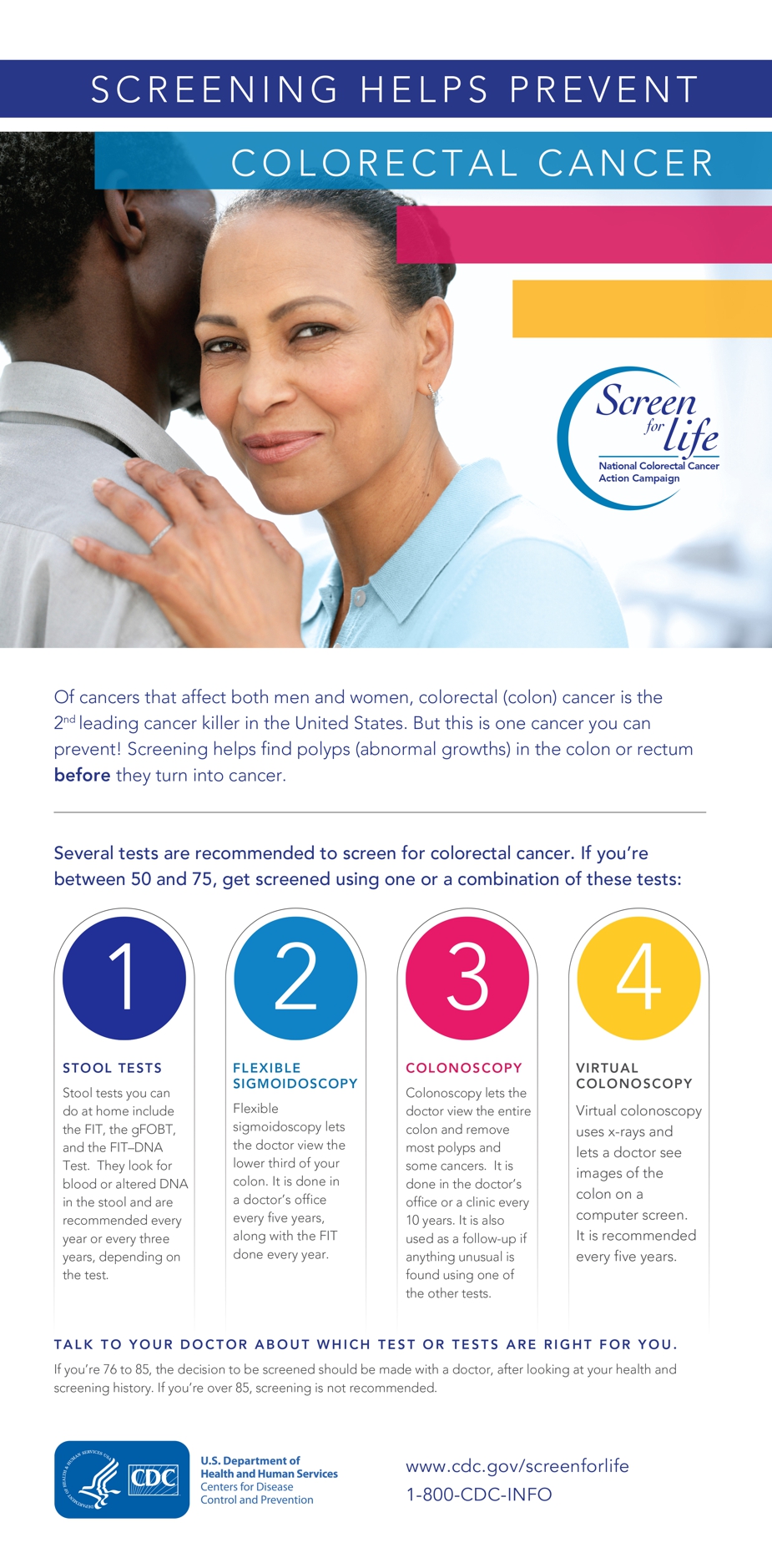Screening helps prevent colorectal cancer
Public Domain
-
February 23, 2017
-
Series: Screen for Life
File Language:
English

Details
-
Corporate Authors:
-
Description:Of cancers that affect both men and women, colorectal (colon) cancer is the second leading cancer killer in the United States. But this is one cancer you can prevent! Screening helps find polyps (abnormal growths) in the colon or rectum before they turn into cancer.
Several tests are recommended to screen for colorectal cancer. If you’re between 50 and 75, get screened using one or a combination of these tests:
1. Stool tests you can do at home include the FIT, the gFOBT, and the FIT–DNA test. They look for blood or altered DNA in the stool and are recommended every year or every three years, depending on the test.
2. Flexible sigmoidoscopy lets the doctor view the lower third of your colon. It is done in a doctor’s office every five years, along with the FIT done every year.
3. Colonoscopy lets the doctor view the entire colon and remove most polyps and some cancers. It is done in the doctor’s office or a clinic every 10 years. It is also used as a follow-up if anything unusual is found using one of the other tests.
4. Virtual colonoscopy uses X-rays and lets a doctor see images of the colon on a computer screen. It is recommended every five years.
Talk to your doctor about which test or tests are right for you.
If you’re 76 to 85, the decision to be screened should be made with a doctor, after looking at your health and screening history. If you’re over 85, screening is not recommended.
-
Subjects:
-
Series:
-
Document Type:
-
Genre:
-
Pages in Document:1 poster
-
Collection(s):
-
Main Document Checksum:urn:sha-512:17526a04d86699aecf05956962be9b1ad933f6aab82b1088e63632d97a89778b1a8a313b0ac8d41f17ff066725d818b2cd71d3ea4813aa9bfa500580f531accd
-
Download URL:
-
File Type:
Related Documents

File Language:
English
ON THIS PAGE
CDC STACKS serves as an archival repository of CDC-published products including
scientific findings,
journal articles, guidelines, recommendations, or other public health information authored or
co-authored by CDC or funded partners.
As a repository, CDC STACKS retains documents in their original published format to ensure public access to scientific information.
As a repository, CDC STACKS retains documents in their original published format to ensure public access to scientific information.
You May Also Like
COLLECTION
Stephen B. Thacker CDC Library

